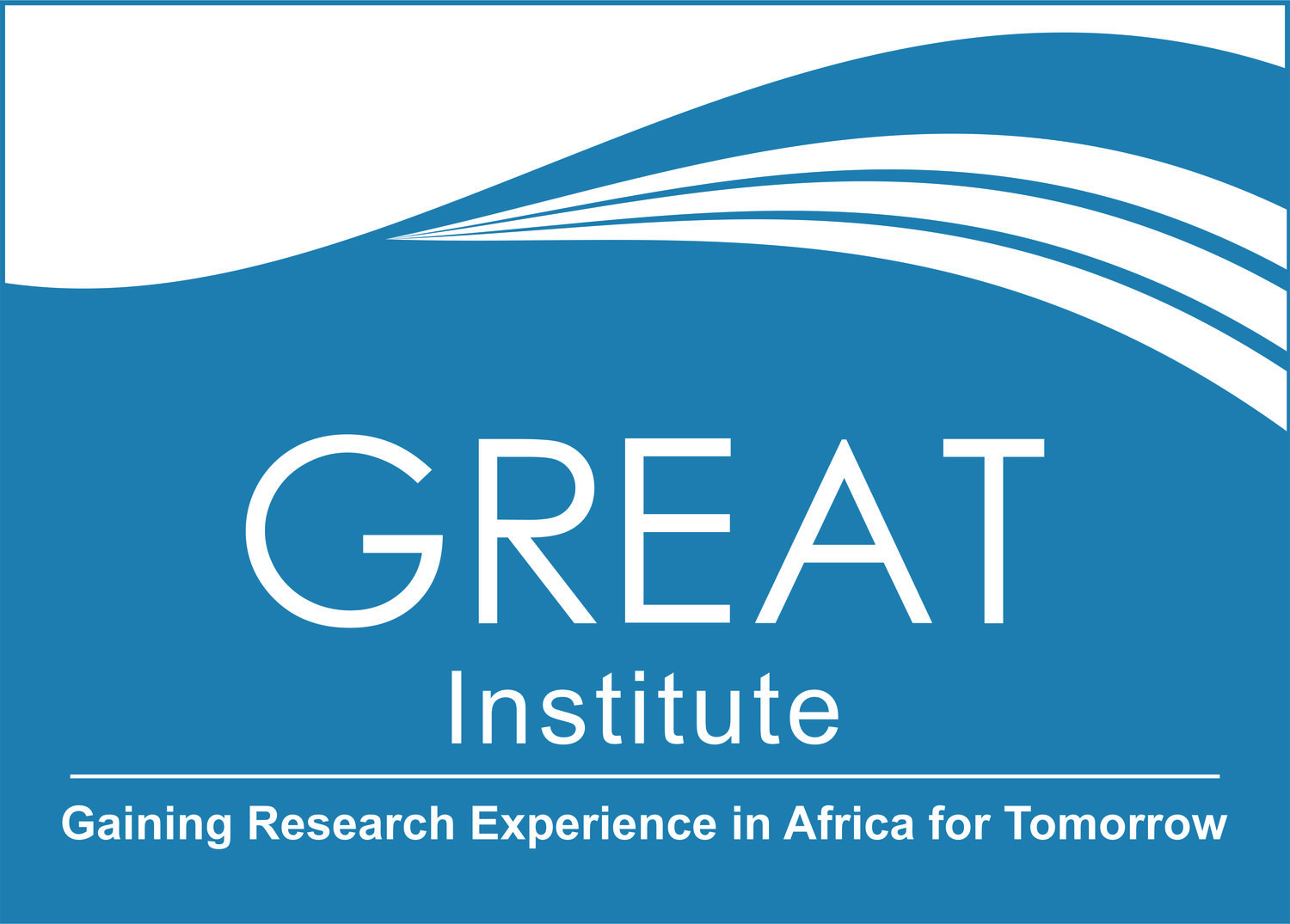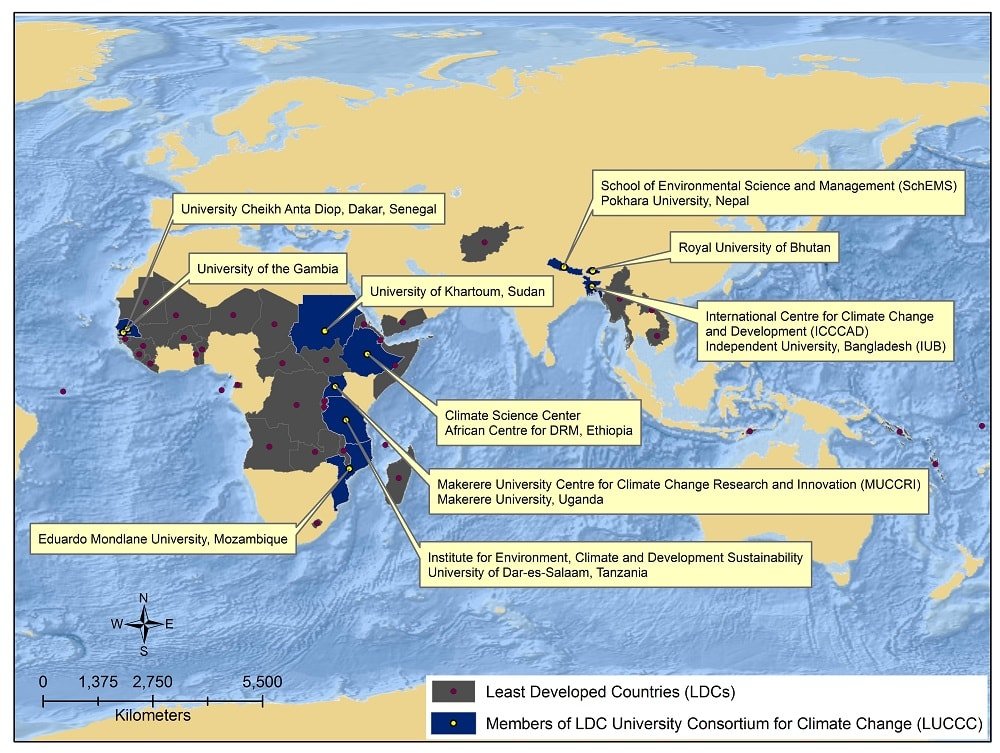Gambia Ocean Heroes World Ocean Day Outreach
In honour of World Environment Day 2022 and World Ocean Day 2022, the Gambia Ocean Heroes team went to three schools as part of their educational outreach programme to spread awareness and get the youth involved in understanding the consequences of plastic pollution. The three schools that were part of this month’s educational outreach were Marakissa Lower Basic School, The Reverend J. C. Faye Memorial School, and Maarif International School.
The GOH team prepared activities for the students to help them understand why there are differences in salinity levels along the River Gambia, the dynamics of ocean food pyramids, and the importance of Marine Protected Areas. The children also got an opportunity to understand some of the tools used for environmental monitoring!
The students engaged in a powerful discussion about the types of population in their compounds and how each individual can help reduce the impact of plastic pollution on the environment. Each student made a pledge on how they will #bepartofthesolution_notthepollution.
The students of Marakissa Lower Basic School posing next to one of our educational banners.
The students were split into three groups in order to promote more engagement.
One of the activities taught the children how to use scientific tools to measure aquatic parameters (in this case, water salinity).
The children of JCFaye posing with our children’s book ‘Fatou and the Two Fishes’ and the Gambia Ocean Heroes team.
The Gambia Ocean Heroes team talking to the students and spreading awareness about the impacts of plastic pollution.
The students of Maarif International School posing with the current Gambia Ocean Heroes coordinator, Muhammed Nyass.
One of the students participating in one of the outreach activities that involves an ocean food pyramid.
Sustainable Ocean Alliance’s Youth and Innovation Forum for the UN Ocean Conference 2022
Our long-time sponsors Sustainable Ocean Alliance co-hosted the UN Ocean Conference Youth and Innovation Forum along with UN Global Compact. This forum took place from the 24th - 26th of June 2022 in Lisbon, Portugal.
With some amazing speeches by SOA Founder Daniela Fernandez, UN Secretary-General Antonio Guterres and the new UN Environment Programme’s Advocate for Life Below Water, Jason Momoa (a real-life Aquaman now) and many others, the forum was a great success in bringing together ocean lovers as well as advocates and spreading awareness about ocean issues.
More than 130 youth delegates from various locations around the world gathered together and came up with innovative solutions to tackle current issues within ocean conservation. We are lucky to have had a representative from the GREAT team be a part of this!
Some of the youth delegates that were present at the Youth and Innovation Forum (SOA 2022).
Reference: SOA 2022, ‘RECAP: United Nations Ocean Conference Youth and Innovation Forum’, SOA Blog, <https://www.soalliance.org/soablog/recap-united-nations-ocean-conference-youth-and-innovation-forum>.
Have You Heard of the LUCCC?
The Least Developed Countries (LDCs) Universities Consortium on Climate Change (LUCCC) is a collaborative initiative that was established after COP22 in January 2017. The goal of the LUCCC is to develop a knowledge-sharing and capacity development programme on adaptation to climate change in universities and training institutes in 48 LDCs. The consortium is managed by the International Centre for Climate Change and Development (ICCAD) and The University of The Gambia is a partner. Below are the objectives of the Consortium:
To foster a South-South collaborative network for promoting education and skills, research capacity and developing multi-dimensional expertise in climate change.
To enhance the capacity of LDC universities through joint research programmes andimplement teaching and demand-driven training programs in various climate change issues.
To develop capacity and work with the most vulnerable countries and communities to foster two-way collaborative learning and capacity-building – blending action & scientific research.
To enable LDC universities & affiliated research/training institutes to serve as repositories of knowledge and generators-suppliers of capacity.
To provide policy support to governments in handling climate change impacts, both nationally & internationally.
The founding university partners of the LUCCC in 2018 (Source: LUCCC 2022).
Recently, the Consortium launched a project called University Leadership for Catalyzing Climate-Adaptation Finance in LDCs (UNI-LEAD). View the below for more information and to learn more.
An informational flyer explaining the UNI-LEAD project by the LUCCC (Source: LUCCC 2022)
References:
ICCAD 2020, ‘Least Developed Countries Universities Consortium on Climate Change' (LUCCC)’, <https://www.icccad.net/luccc/>.
GREAT Institute's River Monitoring Trip
The GREAT team went on a river expedition on the 14th of June 2022 at the mouth of the River Gambia. The trip started at Denton Bridge, went down to Pirang, and then back up to Essau before returning to Denton Bridge.
The GREAT team making observations along the river.
The team measured both terrestrial and aquatic variables and made observations throughout the trip. The data collected from these monthly trips will be added to the GREAT Institute’s Gambia Environmental Monitoring System (GEMS) Programme.
Based on the first and second quarterly data collected at Essau and Pirang for this year, it has been observed that the salinity levels remain unchanged at both sites, measuring 38% at Essau and 36% at Pirang. However, we expect to notice a significant decrease in salinity levels due to the onset of rains that are expected to run through to October.
The GREAT team taking their aquatic measurements, as captured by a drone.
RNA Viruses' Effect On Ocean Ecosystems
While the world has been used to reading about the deadly COVID-19 virus over the past few years, there have been some positive sides to viruses found in a completely unexpected location: the ocean.
Marine viruses are not uncommon; they can be found in most marine ecosystems and though we’ve only recently started researching them, it is clear that they play an important role in regulating and managing marine ecosystems.
There are many types of marine viruses but can be split into two main groups; DNA and RNA viruses. DNA viruses contain a genetic code made up of deoxyribonucleic acid, while the genetic code of RNA viruses contains ribonucleic acid.
An image depicting the difference between DNA and RNA (Thought.co 2020).
Most research involving marine viruses focused on DNA viruses, and there is very little research on RNA viruses. However, recently, a team at the Ohio State University uncovered some links between the RNA viruses and their role within ocean ecosystems.
The RNA viruses were found in four different ecological zones: all depths of the Arctic and the Antarctic, Temperate and Tropical Epipelagic (around the surface of the ocean), and Temperate and Tropical Mesopelagic (deeper in the ocean), while DNA viruses have been recorded in five different zones; the exception for RNA viruses being Temperate and Tropical Bathypelagic zones (which are the deepest parts of the ocean).
It has also been discovered that RNA viruses largely infect plankton (protists in particular) and fungi, contrary to DNA viruses which usually infect bacteria. This choice in hosts results in the RNA viruses playing a major role in the ocean’s carbon cycle, as dead plankton act as a carbon sink when they settle into the ocean floor. This could help store CO2 for many years.
References:
Frontiers For Young Minds 2021, ‘Viruses - Agents of Change’, <https://kids.frontiersin.org/articles/10.3389/frym.2021.569372>.
George V 2022, ‘New RNA viruses might change ocean carbon capture’, Carbon Herald, <https://carbonherald.com/new-rna-viruses-might-change-ocean-carbon-capture/>.
Snyder A 2022, ‘Scientists discover RNA viruses may shape ocean carbon capture’, AXIOS, <https://www.axios.com/2022/06/14/rna-viruses-ocean-carbon-capture>.














